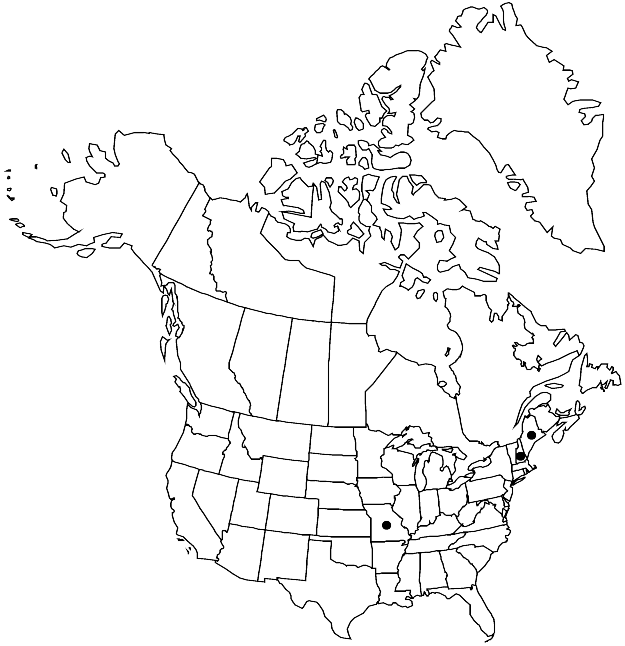Difference between revisions of "Bryum argenteum var. majus"
Sp. Musc. Frond. Suppl. 1(2): 88. 1816.
Treatment appears in FNA Volume 28. Treatment on page 126.
imported>Volume Importer |
imported>Volume Importer |
||
| Line 46: | Line 46: | ||
|publication year=1816 | |publication year=1816 | ||
|special status= | |special status= | ||
| − | |source xml=https:// | + | |source xml=https://bitbucket.org/aafc-mbb/fna-data-curation/src/2e0870ddd59836b60bcf96646a41e87ea5a5943a/coarse_grained_fna_xml/V28/V28_194.xml |
|genus=Bryum | |genus=Bryum | ||
|species=Bryum argenteum | |species=Bryum argenteum | ||
Latest revision as of 22:34, 5 November 2020
Plants green. Stems 0.5–1 cm, loosely julaceous. Leaves longer than broad, hyaline near apex; costal apiculus long; distal laminal cells elongate-hexagonal, 3–4:1.
Phenology: Capsules unknown.
Habitat: Shaded moist soil, disturbed habitats
Elevation: low to moderate elevations (0-500 m)
Distribution

Maine, Mo., N.H., w Europe.
Discussion
Variety majus is poorly understood, and it may be more widely distributed. The pale green, loosely imbricate stems with hyaline apiculus are reminiscent of Plagiobryum zieri, but that species has wide elongate laminal cells throughout the leaf, a pinkish coloration, and arctic-alpine distribution.
Selected References
None.
Lower Taxa
None.